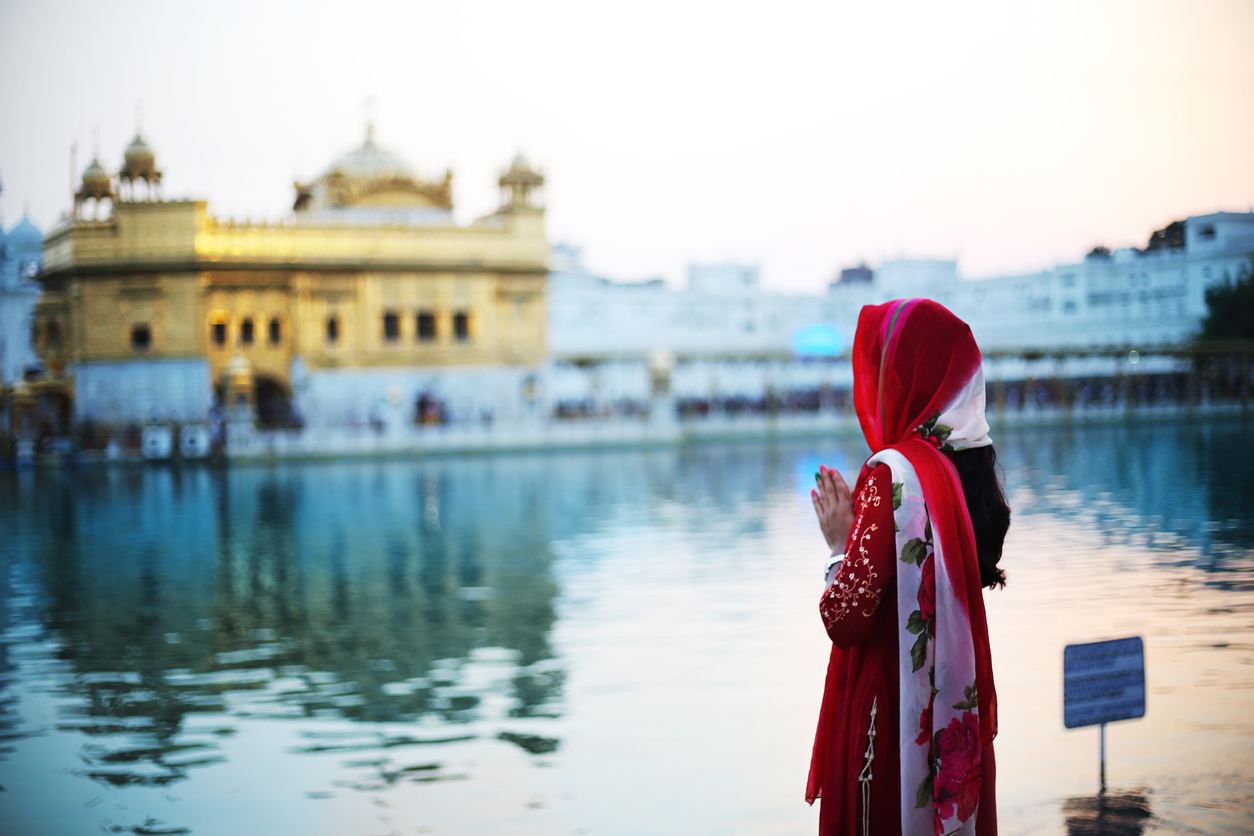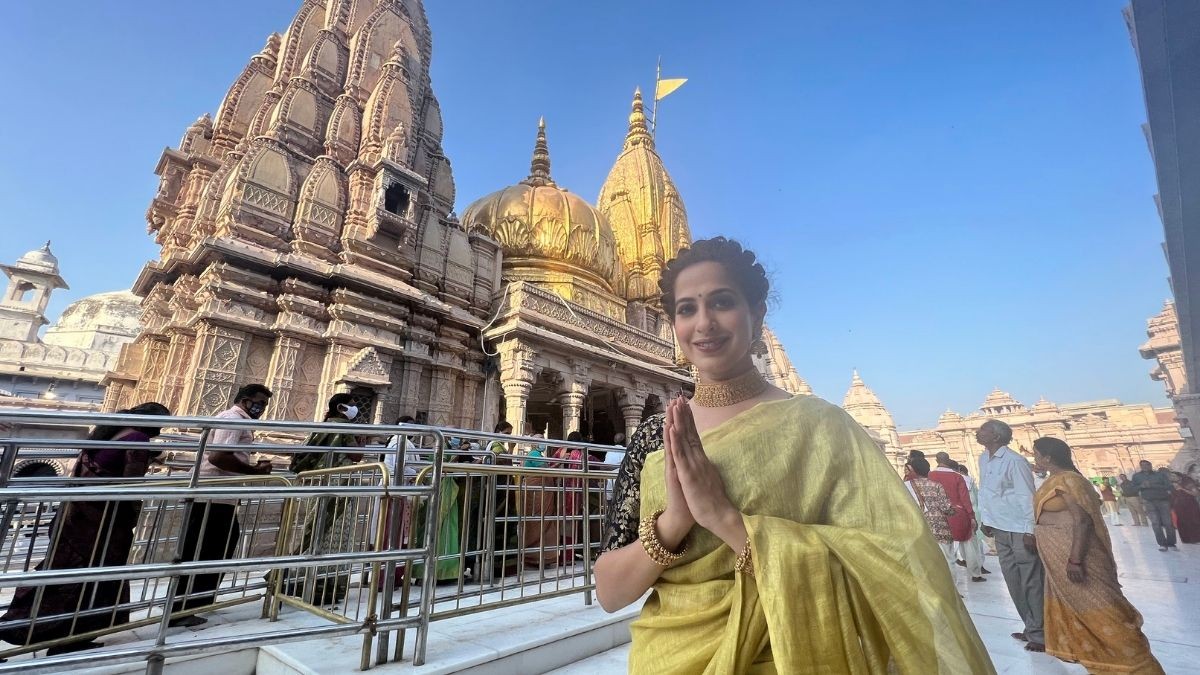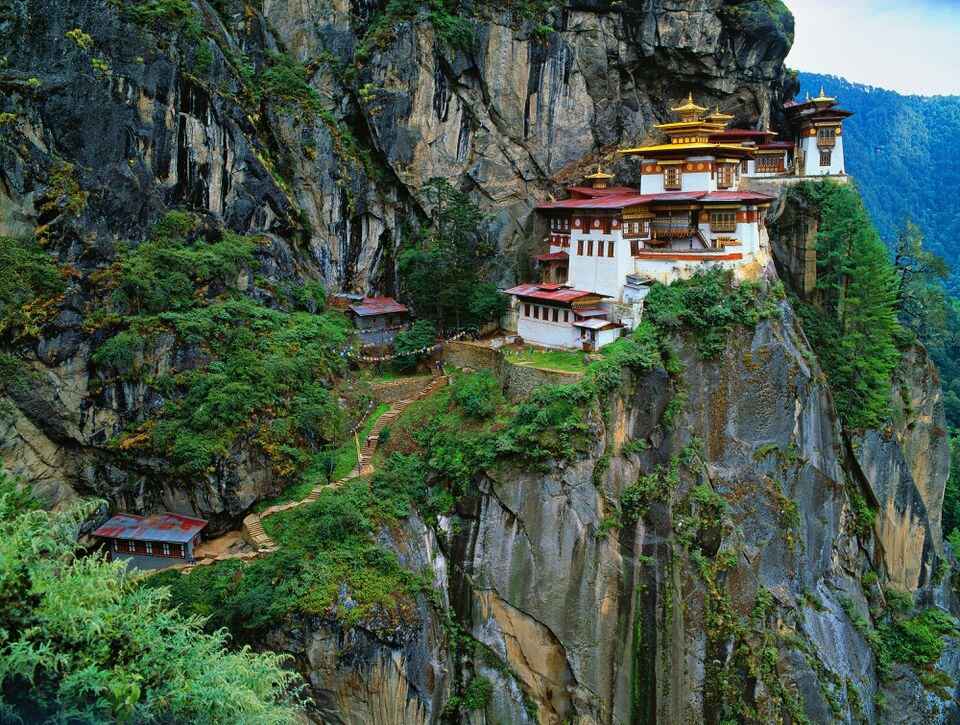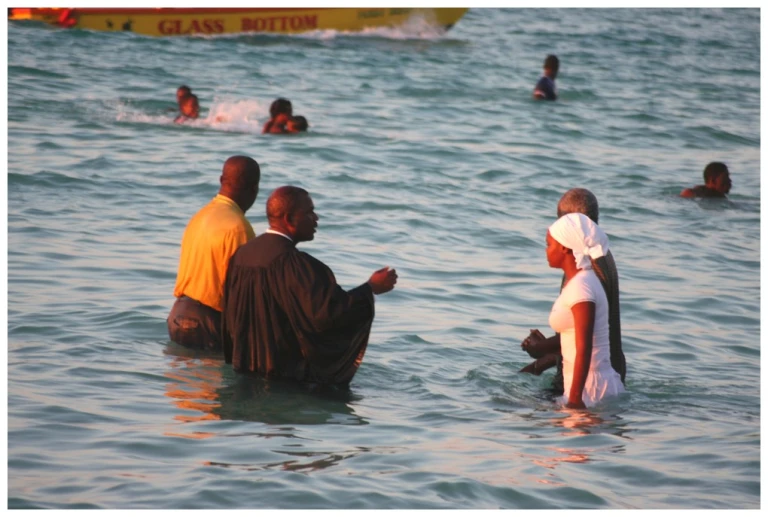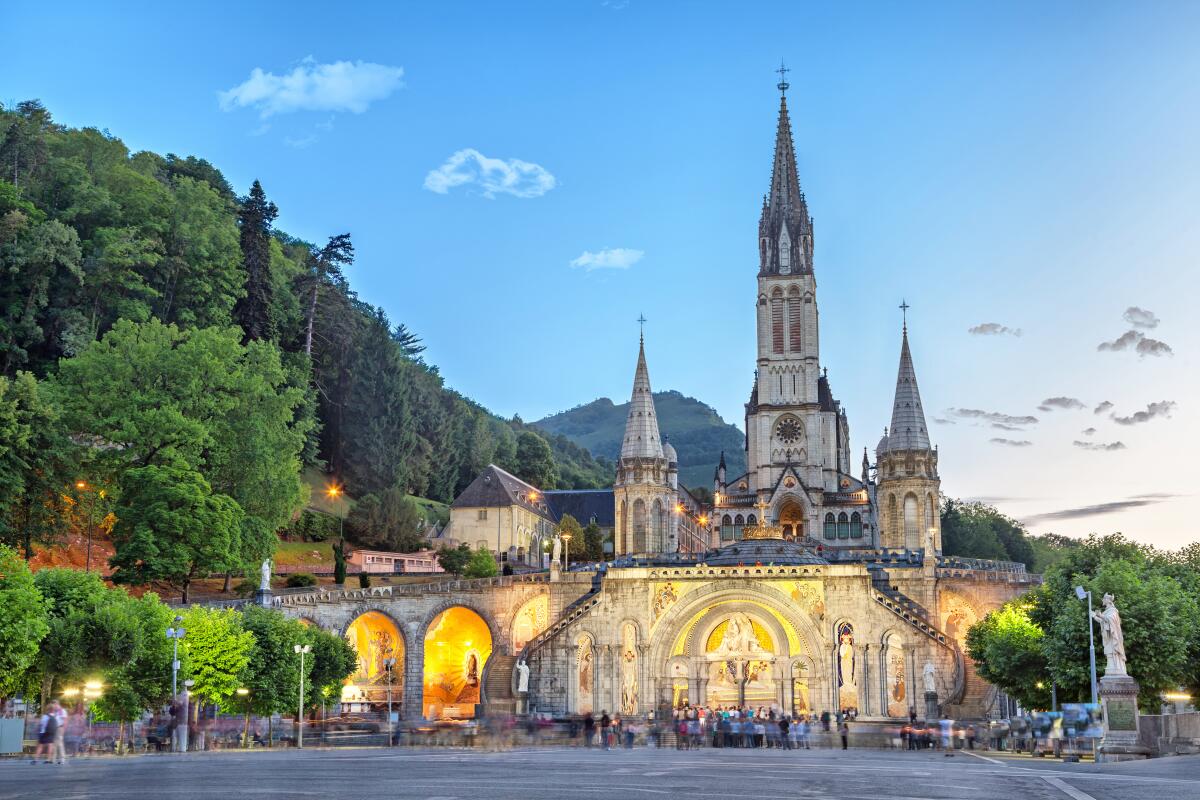Faith Based Tourism - Exploring Spiritual Journeys Around The World
Explore the profound world of Faith-Based Tourism in this comprehensive guide. Discover the spiritual significance of pilgrimages, religious festivals, and sacred sites across diverse cultures. Learn about the cultural exchange, interfaith understanding, and economic impact fostered by these transformative journeys. From the Hajj pilgrimage to Mecca to India's Char Dham Yatra, delve into the spiritual quests that unite humanity. Embark on a divine journey, embracing the essence of faith based tourism, connecting with faith, culture, and fellow travelers in this enlightening exploration.
Author:Velma BattleReviewer:Michael RachalNov 13, 202352.9K Shares706.3K Views

In recent years, there has been a significant rise in a unique form of travel– Faith-Based Tourism. This trend is not merely about sightseeing; it's a transformative experience that allows travelers to delve into the rich tapestry of religious and spiritual traditions across the globe. Faith based tourism, often centered around pilgrimage sites, religious festivals, and spiritual retreats, provides a profound opportunity for believers and curious explorers alike to connect with their faith, explore diverse cultures, and foster interfaith understanding. In this article, we'll delve deep into the world of Faith-Based Tourism, exploring its essence, significance, and the remarkable destinations it encompasses.
The Spiritual Significance Of Faith-Based Tourism
A Quest For Solace And Enlightenment
Faith-Based Tourism is not merely a leisure activity; it is a profound spiritual quest embarked upon by individuals seeking solace, enlightenment, and a deeper connection with the divine. This form of travel goes beyond the conventional tourism experience, touching the very core of human spirituality.
Pilgrimage - Embarking On Sacred Journeys
Pilgrimages form a significant aspect of Faith-Based Tourism. These journeys, often spanning great distances, are undertaken with unwavering faith and devotion. Whether it's the arduous trek to the Amarnath Cave in India or the serene paths leading to Santiago de Compostela in Spain, pilgrimages symbolize dedication, sacrifice, and spiritual cleansing.
Religious Festivals - Celebrating Faith And Culture
Participating in religious festivals is another integral dimension of Faith-Based Tourism. These celebrations are vibrant tapestries of faith, culture, and tradition. Pilgrims and travelers alike gather to witness grand processions, traditional rituals, and communal prayers. Diwali in India, the Carnival of Venice, and Ramadan observances in the Middle East are exemplary occasions of faith merging seamlessly with travel experiences.
Spiritual Retreats - Nurturing The Inner Self
Amidst the hustle and bustle of modern life, spiritual retreats offer sanctuaries of tranquility. These retreats, nestled in serene natural landscapes or tucked away in quiet corners of bustling cities, provide seekers with the opportunity to delve deep into meditation, yoga, and self-reflection. Participants rejuvenate their spirits, finding harmony between their inner selves and the surrounding world.
Sacred Sites - Where Earth Meets The Divine
Visits to sacred sites are pivotal in Faith-Based Tourism. These sites, often adorned with magnificent architecture and imbued with historical and religious significance, serve as bridges between the earthly realm and the divine. The grandeur of the Taj Mahal in India, the spiritual aura of Mount Kailash in Tibet, and the ancient allure of Stonehenge in England captivate the hearts and minds of spiritual travelers, leaving them in awe of the mysteries of existence.
Cultural Exchange And Understanding
Faith-Based Tourism is not just about personal spiritual growth; it also promotes cultural exchange and understanding. Travelers interact with diverse communities, immersing themselves in local customs, traditions, and cuisines. These interactions foster mutual respect, tolerance, and appreciation for the richness of global cultural heritage.
Fostering Cultural Exchange And Interfaith Understanding
Embracing Diversity
Faith-Based Tourism serves as a bridge between cultures, allowing travelers to embrace the rich tapestry of human belief systems. By participating in religious ceremonies, sharing meals with local families, and engaging in conversations with spiritual leaders, travelers gain firsthand insights into the customs and traditions that define different faiths. This immersive experience fosters empathy and respect, breaking down cultural barriers and promoting a genuine understanding of diverse lifestyles.
Promoting Interfaith Dialogue
In the interconnected world of Faith-Based Tourism, individuals from various religious backgrounds come together, engaging in meaningful dialogues about faith, spirituality, and the shared human experience. These conversations pave the way for mutual respect, tolerance, and acceptance. Through the lens of different belief systems, travelers learn to appreciate the universal themes of love, compassion, and kindness, reinforcing the notion that despite religious differences, humanity is bound by common values.
Economic Impact Of Faith-Based Tourism
Creating Employment Opportunities
Pilgrimage sites and religious festivals often serve as economic lifelines for local communities. The influx of visitors creates a demand for services, leading to job opportunities in hospitality, transportation, souvenir shops, and local crafts industries. These jobs not only support the livelihoods of individuals and families but also contribute to the overall socioeconomic development of the region.
Sustaining Local Businesses
The economic benefits of Faith-Based Tourism extend to small businesses and artisans. Local markets thrive as pilgrims and travelers purchase religious artifacts, traditional clothing, and souvenirs. These transactions provide a steady income for artisans and entrepreneurs, preserving traditional crafts and skills that are integral to the region's cultural heritage. In turn, this sustains local economies, ensuring the preservation of cultural identity and authenticity.
Contributing To Infrastructure Development
The steady flow of tourists to religious sites necessitates the development of infrastructure, including roads, accommodations, and utilities. Local governments and businesses invest in enhancing these facilities, catering to the needs of pilgrims and travelers. Improved infrastructure not only enhances the visitor experience but also benefits local residents, enhancing their quality of life and connectivity with the broader world.
Exploring Sacred Sites - Harnessing Religious Heritage For Tourism Development
In recent years, an increasing number of destinations have recognized the potential of harnessing their religious heritage for tourism development. Shrines, deities, groves, cultural centers, and mythical lakes have emerged as significant places of religious worship that not only hold spiritual significance but also offer unique opportunities for cultural exchange and economic growth through tourism. Here’s how these sites can be leveraged for sustainable tourism development:
Shrines - Bridging The Gap Between Faith And Travel
Preservation And Promotion
Historical shrines, often revered by devotees, are repositories of culture and heritage. Through meticulous preservation and thoughtful promotion, these sites can be opened to tourists. Guided tours, storytelling sessions, and cultural performances can enhance visitors' understanding of the shrine's historical and religious importance, making their visit a truly enriching experience.
Interfaith Dialogues
Shrines provide a platform for interfaith dialogue and understanding. Organizing events that promote dialogue among followers of different faiths fosters tolerance and mutual respect. These interactions not only enrich the cultural experience for tourists but also contribute to peace-building efforts on a global scale.
Deities And Groves - Nurturing Nature And Spirituality
Ecotourism Initiatives
Deities and groves often find their abode amidst nature, making them ideal sites for ecotourism initiatives. Conservation efforts can be integrated into tourism activities, encouraging visitors to appreciate the natural beauty surrounding these sacred spaces. Guided nature walks, bird watching, and tree-planting programs can raise awareness about environmental conservation while providing memorable experiences for tourists.
Cultural Immersion
Many deities and groves are deeply intertwined with local folklore and traditions. Tourists can participate in cultural events, traditional ceremonies, and community festivals, immersing themselves in the vibrant heritage of the region. Homestays and community-based tourism initiatives allow visitors to connect with local families, sharing stories and experiences, thus fostering cultural exchange.
Cultural Centers - Preserving Heritage, Inviting Exploration
Museums And Exhibitions
Cultural centers dedicated to religious heritage can house museums and exhibitions showcasing artifacts, manuscripts, and artworks related to the region's faith. These displays serve as educational tools, enlightening visitors about the historical and cultural significance of religious practices. Interactive exhibits engage tourists, offering a deeper understanding of the local traditions.
Workshops And Artisan Markets
Cultural centers can organize workshops where artisans demonstrate traditional crafts and skills. Tourists can participate in these activities, creating souvenirs under the guidance of skilled craftsmen. Artisan markets within these centers provide a platform for local craftsmen to sell their products, ensuring the economic sustainability of the community.
Mythical Lakes - Where Legend Meets Tourism
Nature-Based Activities
Mythical lakes, often shrouded in legends and folklore, draw curious travelers seeking the enchantment of mythical stories. These sites can offer nature-based activities such as boating, hiking trails, and picnics, allowing visitors to immerse themselves in the picturesque surroundings. Interpretive guides can narrate the myths associated with the lake, adding a layer of mystery and intrigue to the visitor experience.
Cultural Festivals
Organizing cultural festivals near mythical lakes can attract tourists from far and wide. These festivals can include music and dance performances, theatrical presentations, and storytelling sessions based on the lake's legends. Such events not only draw tourists but also involve the local community, encouraging active participation and fostering a sense of pride in their cultural heritage.
Unlocking The Potential - Transforming Sacred Sites Into Tourist Destinations
In many parts of the world, there exists a treasure trove of sacred sites—shrines, deities, groves, cultural centers, and mythical lakes—that remain largely unexplored in terms of tourism. Despite their lack of harnessing for commercial purposes, these sites continue to draw visitors driven by profound religious beliefs and spiritual purposes. However, the untapped potential of these locations for tourism remains vast and promising. Here’s how these sites can be transformed into vibrant tourist destinations while preserving their sanctity and cultural significance:
Preservation And Interpretation: Preserving The Essence, Sharing The Story
Conservation Efforts
Preservation should be the cornerstone of any tourism initiative involving sacred sites. Ensuring the conservation of architectural marvels, natural surroundings, and cultural artifacts is paramount. Implementing sustainable practices helps maintain the site's pristine beauty, ensuring that future generations can experience its authenticity.
Interpretative Centers
Establishing interpretative centers near these sites can provide valuable historical and cultural context to visitors. These centers can house exhibits, multimedia displays, and interactive presentations, offering insights into the site's religious significance, folklore, and traditions. Well-informed guides can lead tours, sharing captivating stories that enhance visitors' understanding and appreciation of the site.
Community Engagement: Empowering Local Communities
Community Involvement
Involving local communities in the tourism development process is essential. Empowering locals to actively participate, whether as guides, artisans, or storytellers, not only preserves their cultural heritage but also generates income and a sense of pride. Community-driven initiatives ensure that the benefits of tourism are shared among the people directly involved in preserving these sacred sites.
Cultural Workshops
Organizing workshops and skill development programs can enable community members to showcase their traditional crafts, music, dance, and culinary skills. These workshops not only enrich the visitor experience but also provide economic opportunities for local artisans and entrepreneurs. Tourists, in turn, can engage in hands-on activities, creating memorable souvenirs while supporting the local economy.
Responsible Tourism - Balancing Preservation And Visitor Experience
Visitor Guidelines
Establishing clear guidelines for visitors is essential to maintaining the sanctity of these sites. Educating tourists about respectful behavior, dress codes, and responsible photography helps preserve the religious atmosphere while ensuring a positive experience for everyone. Respectful interaction fosters a harmonious environment where visitors can absorb the spiritual aura without intruding on the sacred practices of the site.
Low-Impact Infrastructure
When necessary, the construction of low-impact infrastructure, such as eco-friendly accommodations and waste management systems, can cater to tourists without harming the natural surroundings. By integrating modern amenities with traditional architecture and eco-friendly practices, these sites can offer comfortable stays for visitors while preserving the site's natural beauty.
Differences In Religious Tourism - Exploring Unique Practices And Traditions
When it comes to religious tourism, each faith brings its distinct practices, rituals, and traditions, offering travelers a diverse array of spiritual experiences. From the vibrant festivities of Hindu pilgrimages to the serene contemplation of Buddhist monastic retreats, understanding these differences enriches the cultural tapestry of our global travels. Explore further insights on the most religious countries in the world.
Christianity, A Journey Through Sacred Shrines And Historical Landmarks
Discover the architectural marvels of cathedrals, the spiritual sanctity of pilgrimage sites, and the rich heritage of Christian religious tourism. From the Vatican City to the Camino de Santiago, experience the profound faith of Christian travelers.
Islam, Pilgrimage To Mecca And Spiritual Serenity
Explore the significance of Hajj, the sacred pilgrimage to Mecca, and the spiritual tranquility found in mosques and Islamic heritage sites worldwide. Witness the unity of purpose and devotion in the hearts of Muslim travelers.
Hinduism, Sacred Temples, Festivals, And The Char Dham Yatra
Immerse yourself in the vibrant colors of Hindu festivals, the divine aura of ancient temples, and the transformative journey of Char Dham Yatra. Experience the profound spirituality that permeates every aspect of Hindu religious tourism.
Buddhism, Monastic Retreats And Spiritual Enlightenment
Embark on a quest for inner peace through Buddhist monastic retreats, meditation centers, and pilgrimage sites like Bodh Gaya. Explore the teachings of Buddha and the serene ambiance that characterizes Buddhist religious tourism.
Judaism, Heritage Tours And Holy Site
Delve into the historical significance of Jewish heritage tours, exploring ancient synagogues, the Western Wall, and the timeless traditions of Judaism. Experience the deep-rooted faith and cultural richness of Jewish religious tourism.
Faith-Based Tourism - People Also Ask
What Is Faith-Based Tourism?
Faith-Based Tourism, also known as Religious Tourism, is a unique form of travel deeply rooted in religious beliefs and spiritual experiences. It involves pilgrimages, visits to sacred sites, religious festivals, and spiritual retreats, providing travelers with an opportunity to embark on a profound quest for solace, enlightenment, and a deeper connection with the divine. This spiritual journey not only fulfills personal faith but also fosters cultural exchange, interfaith understanding, and economic growth in local communities.
What Is An Example Of Faith Tourism?
Hajj Pilgrimage to Mecca, Saudi Arabia:The Hajj pilgrimage in Islam is a quintessential example of Faith-Based Tourism. Millions of Muslims undertake this journey annually, performing rituals that symbolize unity, equality, and submission to God. It is a deeply spiritual experience and one of the Five Pillars of Islam.
Char Dham Yatra in India:The Char Dham Yatra, encompassing the sacred sites of Yamunotri, Gangotri, Kedarnath, and Badrinath in the Himalayas, is a revered pilgrimage in Hinduism. Devotees undertake this journey seeking spiritual cleansing and blessings from the deities associated with these sites.
What Is Meant By Religious Tourism?
Religious Tourismencompasses travel activities focused on religious sites, practices, and traditions. It includes visits to places of worship such as temples, churches, mosques, synagogues, and pilgrimage sites. Religious Tourism also involves participation in religious festivals, events, and ceremonies. Unlike Faith-Based Tourism, which is deeply personal and spiritual, Religious Tourism has a broader scope, catering to individuals interested in exploring diverse religious cultures, traditions, and historical landmarks around the world.
Conclusion
Faith-Based Tourism transcends the conventional boundaries of travel, offering a transformative odyssey of the spirit. As travelers embark on these sacred journeys, they not only deepen their faith but also foster a global community bound together by shared spiritual experiences.
Embracing the divine journey of Faith-Based Tourism opens the door to a world of enlightenment, cultural enrichment, and profound interfaith connections. So, pack your bags and embark on a spiritual adventure that transcends the ordinary, and discover the awe-inspiring world of Faith-Based Tourism.
Jump to
The Spiritual Significance Of Faith-Based Tourism
Fostering Cultural Exchange And Interfaith Understanding
Economic Impact Of Faith-Based Tourism
Exploring Sacred Sites - Harnessing Religious Heritage For Tourism Development
Shrines - Bridging The Gap Between Faith And Travel
Deities And Groves - Nurturing Nature And Spirituality
Cultural Centers - Preserving Heritage, Inviting Exploration
Mythical Lakes - Where Legend Meets Tourism
Unlocking The Potential - Transforming Sacred Sites Into Tourist Destinations
Preservation And Interpretation: Preserving The Essence, Sharing The Story
Community Engagement: Empowering Local Communities
Responsible Tourism - Balancing Preservation And Visitor Experience
Differences In Religious Tourism - Exploring Unique Practices And Traditions
Faith-Based Tourism - People Also Ask
Conclusion

Velma Battle
Author
Travelling Expert

Michael Rachal
Reviewer
Travelling Expert
Latest Articles
Popular Articles
